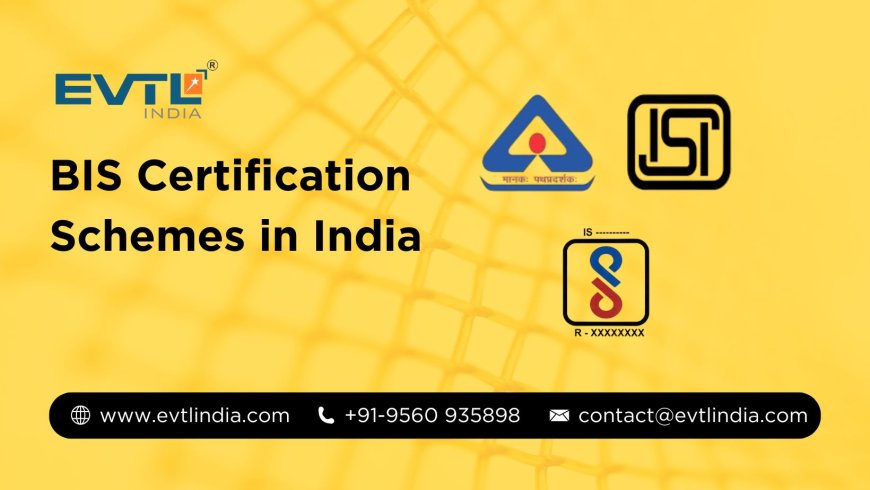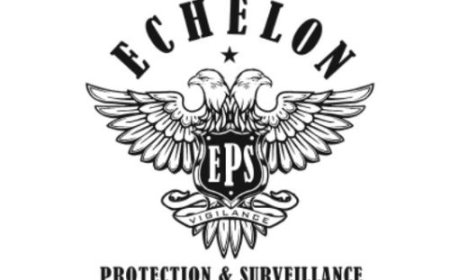BIS Certification: Ensuring Quality and Safety for Every Product in India

In today's world, buying safe and good-quality products is very important. Whether its a mobile phone or a toy, customers expect the best. BIS Certification helps make sure that the products we use every day are safe, reliable, and made with good standards. BIS stands for the Bureau of Indian Standards, which is the national body that sets and checks product quality in India.
Lets understand what BIS Certification is, why it matters, and how it helps manufacturers and customers across the country.
What Is the BIS Certification Scheme?
The BIS certification scheme is a set of rules and guidelines that ensures products meet Indian quality and safety standards. This scheme allows manufacturers to use the standard mark (ISI Mark or CRS mark), which tells buyers that the product is tested and certified.
The BIS certification scheme covers a wide range of products such as:
-
Electronics like mobile phones, LED lights, and batteries
-
Household items like pressure cookers and water filters
-
Industrial goods like steel bars and cement
-
Safety products like helmets and life jackets
This scheme supports the Make in India mission and makes sure that both Indian and foreign manufacturers follow proper safety guidelines before selling in India.
Types of BIS Registration Schemes in India
Different products follow different types of BIS schemes in India based on how they are made, used, and tested. The most common BIS schemes are:
1. ISI Mark Certification Scheme
This is used for products that fall under the mandatory certification list. It involves factory inspection and testing of product samples in BIS-approved labs.
2. Compulsory Registration Scheme (CRS)
This is used mostly for electronics and IT products. Manufacturers must register their products and get them tested from BIS-recognized labs. CRS does not need factory inspection.
3. Foreign Manufacturer Certification Scheme (FMCS)
This scheme is for foreign manufacturers who want to sell products in India. BIS inspectors visit the overseas factory before granting certification.
Each scheme has different rules, documents, and timelines, but the goal remains the same: to maintain product quality.
Why Is BIS Registration Important for Manufacturers?
Getting BIS registration helps manufacturers build trust and grow their market in India. It proves that their products are safe and approved by the government. Here are some benefits of BIS registration:
-
It improves product quality and meets safety standards
-
It allows legal sale of products in India
-
It helps gain consumer trust and brand image
-
It avoids legal troubles, fines, or product bans
-
It supports exports from India to other countries
Manufacturers who ignore BIS rules can face penalties and may not be allowed to sell their products in Indian markets.
How Does BIS Certification Work?
The process of getting BIS certification is simple, but it must follow the correct steps. Heres how it usually works:
-
Identify Product Category
Check if your product falls under the list of items needing BIS certification. -
Choose the Right Scheme
Understand whether you need ISI, CRS, or FMCS certification depending on your product and location. -
Testing and Application
Send product samples to a BIS-approved lab and collect the test reports. -
Submit Documents
Apply online and upload required documents like test reports, factory details, and business identity. -
Factory Inspection (if needed)
BIS officers may visit the factory to check the production system. -
Certification and Marking
Once approved, the manufacturer can use the standard mark on their products.
This process may take a few weeks, depending on the product type and the scheme involved.
Simple Tips to Remember for BIS Application
To avoid delays and mistakes during the certification process, keep these things in mind:
-
Always use the latest BIS product list before applying
-
Choose the correct testing lab and scheme
-
Keep your documents ready and updated
-
If youre a foreign manufacturer, hire a BIS agent in India for faster communication
-
Follow packaging and labeling rules carefully after getting the certification
These steps help in smooth certification and also keep your product quality in check.
Who Needs BIS Certification in India?
BIS certification is not just for large industries. It is required by:
-
Indian manufacturers selling consumer or industrial products
-
Foreign brands that want to enter the Indian market
-
E-commerce sellers listing electronics or home appliances
-
Startups making toys, gadgets, or lighting products
In short, anyone selling certain listed products in India must get certified before launching them.
Eco-Friendly Approach of BIS Schemes
The Bureau of Indian Standards also supports environment-friendly practices. The BIS norms promote:
-
Use of recyclable and non-toxic materials
-
Reduction in energy consumption in electronic goods
-
Safe disposal of waste and packaging materials
-
Use of renewable and safe resources wherever possible
This helps protect nature and reduce pollution. As more green products enter the market, BIS helps ensure they are truly safe for both users and the planet.
Conclusion
EVTL India is one of the leading BIS Consultant in India, helping manufacturers obtain their BIS licences hassle-free. In India, quality and safety matter a lot when it comes to products. BIS certification gives customers peace of mind and helps businesses grow responsibly. It builds trust, improves the product image, and makes sure goods meet national standards.
Whether you are a local producer or a global company, BIS registration can open many doors in Indias large and growing market. By following the right BIS scheme, you not only meet legal needs but also become a part of Indias quality revolution.





























